Erika and Lena
Erika and her family live between two homes, a collective apartment in Malmö and a country cottage 20 minutes away.
Today, the Jhalani family is a shining modern example of India’s traditional joint-family system. Three generations aged 10-80 where six are from the original seven families, live together under one roof. This home was built in 1964. Once commonplace in India but a rarity in contemporary society, this system brings siblings and their families together under one massive roof. What sets the Jhalanis apart from previous generations is the way they’ve managed to sustain this way of life over decades while nurturing the individual freedom of their 40-odd members.
“We are like a train with 7 bogies joined together. We can live independently, but also live together,” says Yogesh Chandra Jhalani, a business owner and the youngest of the founding brother.
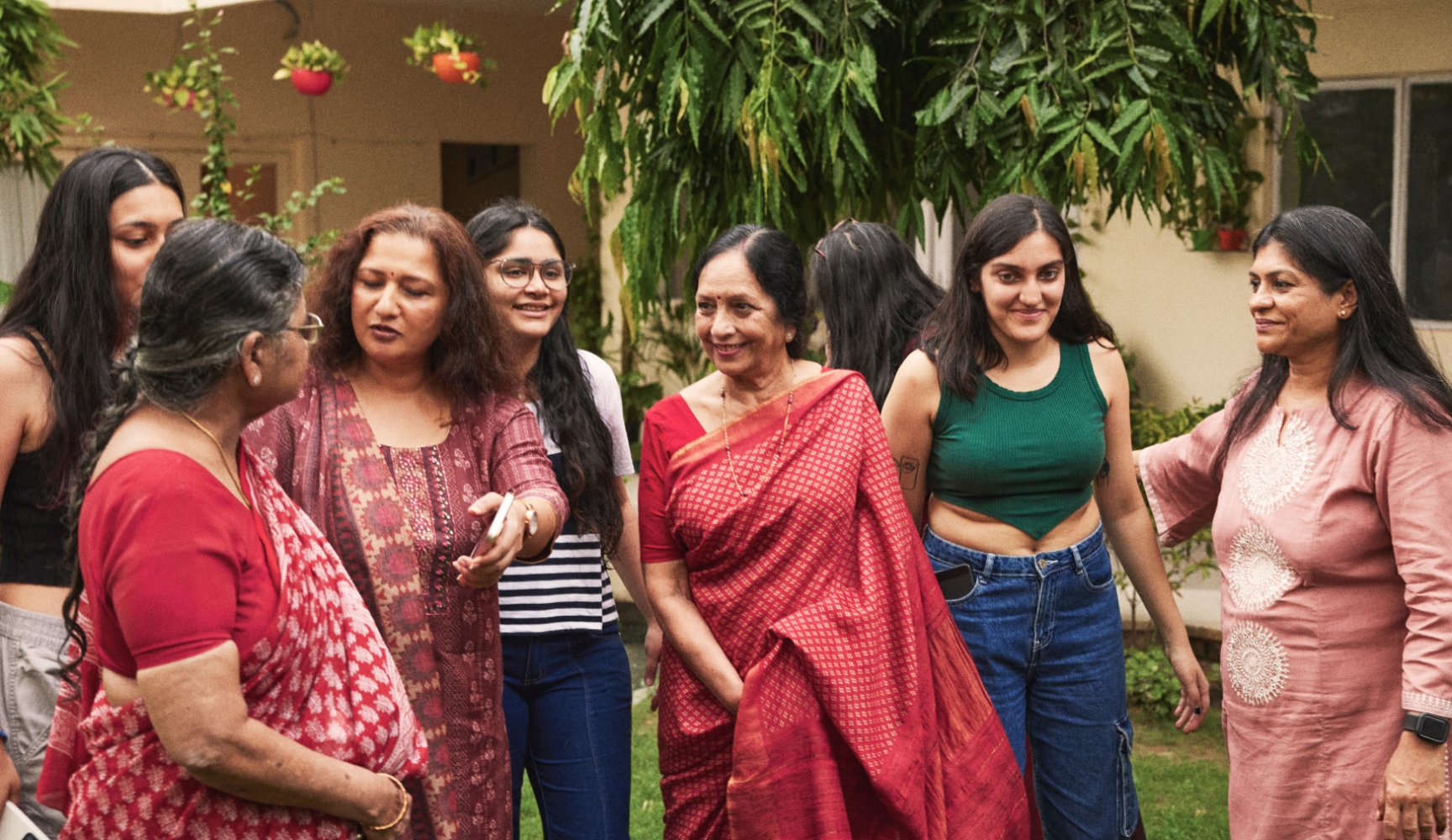
“We had to figure out a way to provide everybody independence, and at the same time common spaces to share,” said Yogesh.
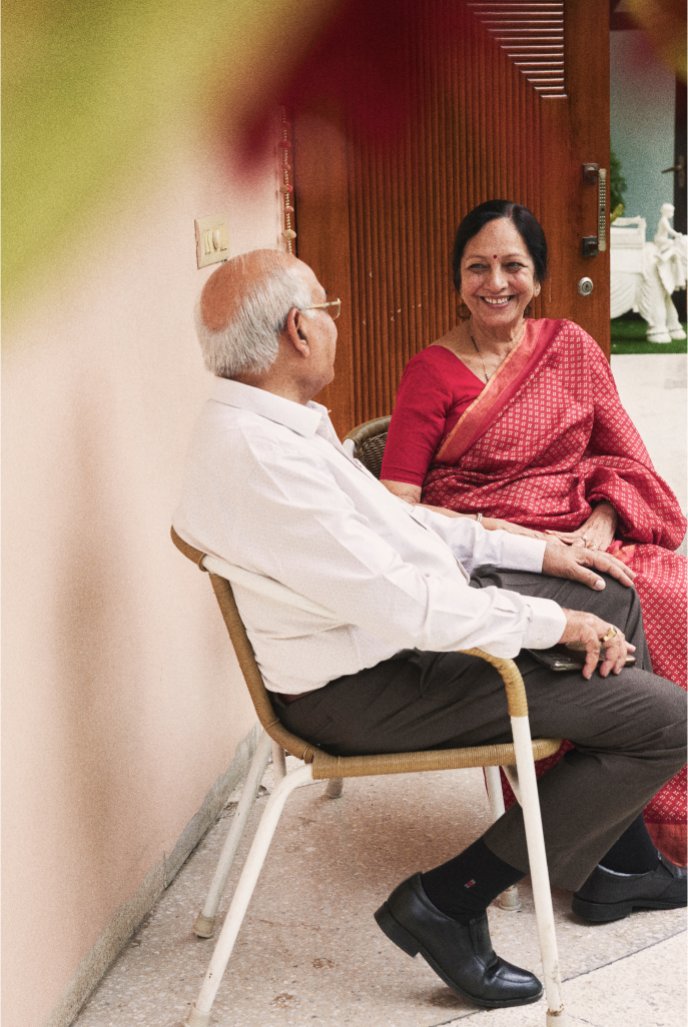
Alka Jhalani, a 60-year-old second-generation resident of the home, has lived here since she got married 40 years ago. Over those decades, a lot has changed, including her role in the family. Once the daughter-in-law who would rush to tidy up, she now has more of a stable place in the family and feels free to take breaks between cleaning sessions. This time allows her to enjoy music or indulge in a gossip session as she lets the younger generation take over the work responsibilities.
The solution was their current home, where they have lived together since its completion in 1967. Featuring seven individual units, it is shaped like a giant S. There is one unit for each family with common areas like gardens and parking scattered throughout.
“One should feel comfortable as soon as they enter the home,” Yogesh states. “This comfort comes from independence. They must remodel their spaces per their needs, thoughts, etc. While we can always enjoy the common spaces together, in each house, you will find a different decor as per their tastes.”
Yogesh explains that the dilemma the family faced when trying to accommodate privacy and togetherness mirrored the clash of diverse cultures and languages within India’s national borders. He recollects observing that his sisters-in-law needed to have their own space which created quite a challenge for the design of the house. So immersive was the project, he explains, that he postponed his marriage until the house was finished.
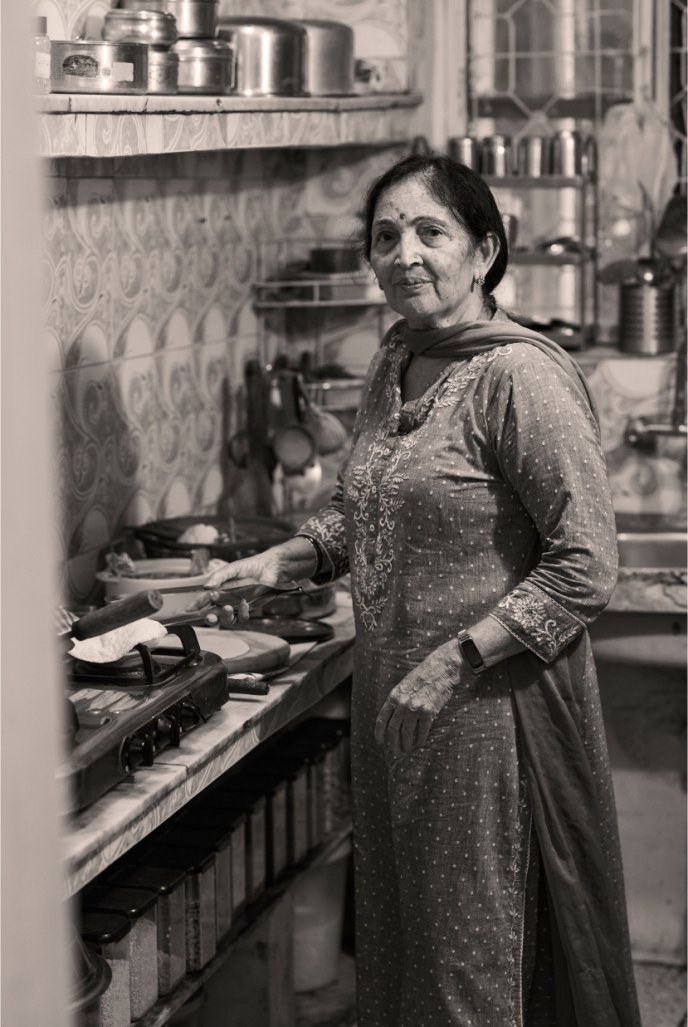
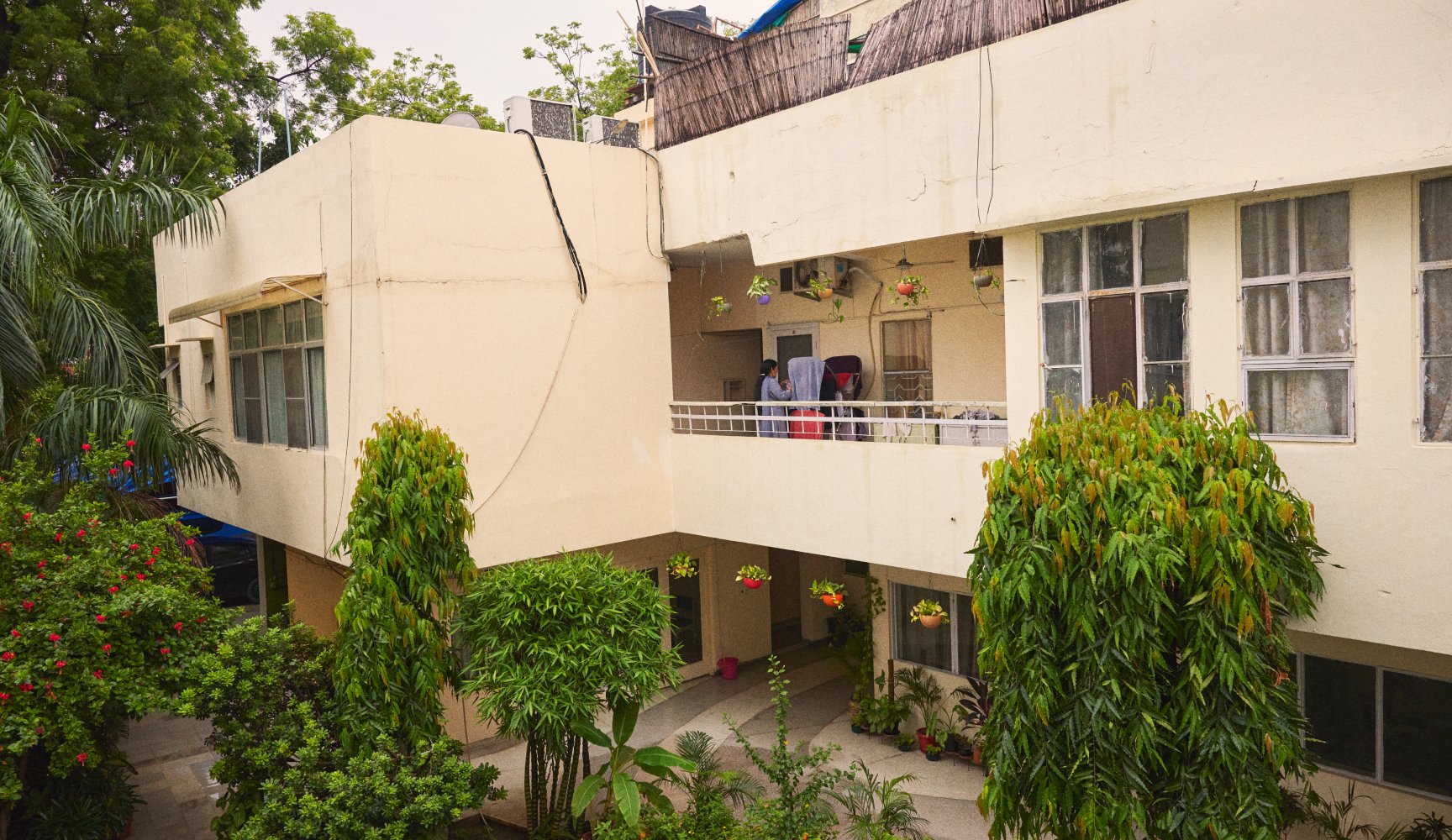
“You’re never alone. If you’re ever sick, you have a team of people looking after you. And you never need a babysitter because there is always someone here to look after the kids,” explains Alka.
She says that while the home’s abundant population prevents anybody from feeling lonely, it comes with challenges, too. “It means you have to smile even when you don’t feel like smiling.” The moment she steps out into a common area she feels a sense of responsibility for the greater good of the family.
Would she trade this life for a different one? “Never,” she says, “because home is everything to us”. Living in the Jhalani family has given her an unshakeable sense of security and endless entertainment, both of which are essential to her. Others in the family, like her daughter Tanushree Jhalani, 40 years old and a third-generation member of the house, feel that despite living with approximately 40 family members, personal space has never been invaded. There is always space for individuality.
“Privacy to me is an extremely overrated concept,” Tanushree says. “The way we’ve been brought up, I’m happy. There is privacy when you need it, and nobody tells me what to do. I can live my life the way I want, and everybody respects that.”
Living in the Jhalani home has always been a choice for all family members. After she got married, Tanushree decided to leave the home, but she returned when her son was born. In India, the traditional system often includes raising children with the support of extended family. Returning home allowed her to focus on her career in advertising while her family helped care for her son. It’s important, she says, for her son to grow up surrounded by people and cousins. She wants him to learn how to share, to help others and to form bonds with other people. Moving back into the family home has had a positive influence in her view.
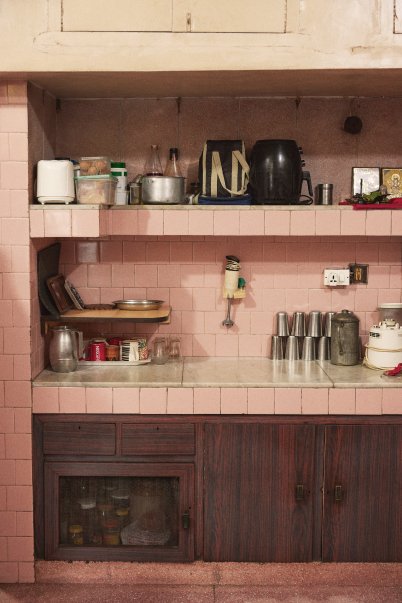
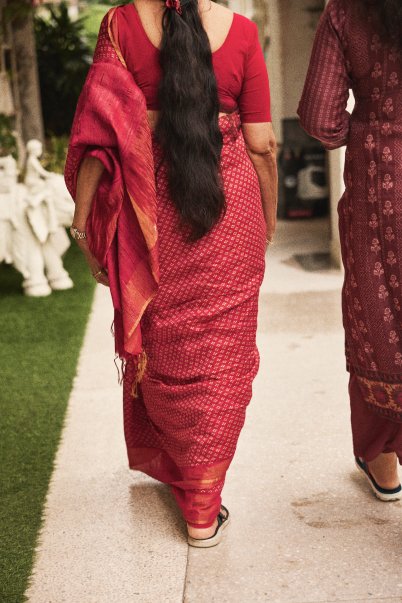
Tanushree feels that the concept of security for her has evolved. She says, “It used to be a physical concept, but now it’s a mental one. I know that while I am away my son is being cared for by family, and that there are people here who would do anything to make sure he is happy.”
Tanushree’s place within the family structure helps her to appreciate the comfort of being a small part of a larger whole. She fondly recalls the days when power cuts were common, and the entire family would gather outside with their mattresses to sleep side-by-side under the open sky. These experiences forged bonds that have endured a lifetime, guiding the family to feel comfort, security and belonging over the years